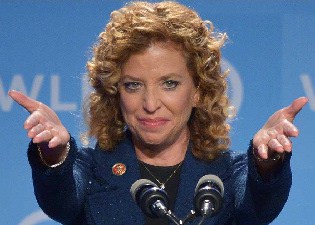Prime Minister of Barbados Highlights the Role of the OAS
WASHINGTON, DC – The Permanent Council of the Organization of American States (OAS) today hosted the Prime Minister of Barbados, Freundel J.Stuart, in a meeting held at the headquarters of the organization in Washington DC.
During the ceremony, OAS Secretary General José Miguel Insulza welcomed the Prime Minister on “his first visit to the house of the Americas,” and emphasized the history of the relationship between the Caribbean country and the organization that he heads. “Barbados and the OAS have had a long and enduring relationship” since 1967 when it became a Permanent Member, the Secretary General recalled. Since then, he added, Barbados has maintained “a hemispheric and regional vision” as well as pursuing “strong and respectful relations with other OAS member states and associated entities.”
In his speech welcoming Prime Minister Stuart, Secretary General Insulza emphasized that Barbados was the first Caribbean country to occupy the position of Assistant Secretary General “under the leadership of the late Ambassador Valerie McComie” between 1980 and 1990, and highlighted the country’s active participation within the OAS, specifically in the Inter-American Commission on Human Rights, the Inter-American Court of Human Rights, the Inter-American Juridical Committee and other committees.
The head of the hemispheric organization recognized Barbados as “a partner in efforts towards greater regional cooperation and hemispheric integration” and noted that the organization is working with the country’s government to develop an Anti-Drug Plan, as well the Social Protection Network “Puente in the Caribbean,” which seeks “to enhance social protection strategies for the most disadvantaged in our societies, through knowledge transfer and lessons learned from other Member States.”
Prime Minister Stuart, meanwhile, expressed thanks for the opportunity to address the Council and praised the vision of the Democratic Charter of the OAS which calls for “promoting economic, social and cultural development” of its members, so as to “eradicate extreme poverty that constitutes an obstacle to the full democratic development of the peoples of the hemisphere.”
The Prime Minister stressed the need “to build and improve the policies and institutions that strengthen the foundations for sustainable development in the region, under the leadership of the Secretary General” and called on Member States and the Permanent Council to “join this hemispheric challenge.”
The Prime Minister reiterated his commitment to “safeguarding the ability of individuals to pursue their personal development, through the provision of essential education, health and other social services.” “It is clear that our principal goal as leaders is to improve the quality of life of our people and to provide them with opportunities which will enable them to live prosperous, fulfilled lives, fully enjoying their rights and freedoms as citizens,” he said.
During his address to the Council, he emphasized that “we must not lose sight of the essential role the OAS plays on matters related to development and the essential importance of development to both multidimensional security and maintenance of democracy.” He added his belief in the importance of the Summit process as “a valuable occasion for the Heads of State and Government of the countries of the Americas to meet to discuss the challenges facing our region and our peoples. It is also an occasion for us to foster closer cooperation among our countries and to coordinate policies and strategies to improve the well-being and standard of living of our citizens.”
Regarding the Sixth Summit of the Americas, held recently in Cartagena, Colombia, the Prime Minister stressed that the Summit called for unity and for leaders “to put our people at the heart of democratic governance.” It also represented an opportunity to highlight “the many trying situations facing the citizens of the Americas and the struggles they face to survive on a daily basis.” He said that cycles of boom and bust “afflict the economies of smaller states and render large portions of our populations unable to thrive,” demonstrating the need for concerted action. This is where “the OAS still has a role to play in assisting members to adequately address this challenge,” considerations that should be “integral to any process of reflection on the vision and future work of the organization.”


